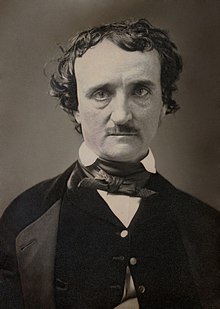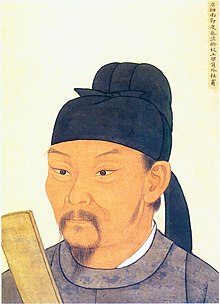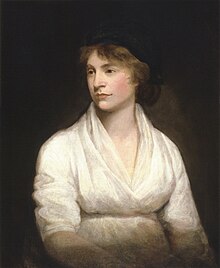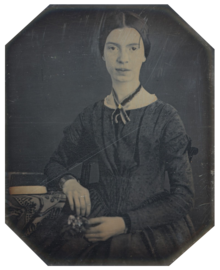Portal:Literature
Introduction

Literature is any collection of written work, but it is also used more narrowly for writings specifically considered to be an art form, especially novels, plays, and poems. It includes both print and digital writing. In recent centuries, the definition has expanded to include oral literature, much of which has been transcribed. Literature is a method of recording, preserving, and transmitting knowledge and entertainment. It can also have a social, psychological, spiritual, or political role.
Literary criticism is one of the oldest academic disciplines, and is concerned with the literary merit or intellectual significance of specific texts. The study of books and other texts as artifacts or traditions is instead encompassed by textual criticism or the history of the book. "Literature", as an art form, is sometimes used synonymously with literary fiction, fiction written with the goal of artistic merit, but can also include works in various non-fiction genres, such as biography, diaries, memoirs, letters, and essays. Within this broader definition, literature includes non-fictional books, articles, or other written information on a particular subject. (Full article...)
General images -
Candide, ou l'Optimisme is a French satire first published in 1759 by Voltaire, a philosopher of the Age of Enlightenment. It begins with a young man, Candide, who is living a sheltered life in an Edenic paradise and being indoctrinated with Leibnizian optimism (or simply Optimism) by his mentor, Pangloss. The work describes the abrupt cessation of this lifestyle, followed by Candide's slow, painful disillusionment as he witnesses and experiences great hardships in the world. Voltaire concludes with Candide, if not rejecting optimism outright, advocating a deeply practical precept, "we must cultivate our garden", in lieu of the Leibnizian mantra of Pangloss, "all is for the best in the best of all possible worlds".
Candide is characterised by its sarcastic tone, as well as by its erratic, fantastical and fast-moving plot. A picaresque novel with a story similar to that of a more serious bildungsroman, it parodies many adventure and romance clichés, the struggles of which are caricatured in a tone that is mordantly matter-of-fact. Still, the events discussed are often based on historical happenings, such as the Seven Years' War and the 1755 Lisbon earthquake. As philosophers of Voltaire's day contended with the problem of evil, so too does Candide in this short novel, albeit more directly and humorously. Voltaire ridicules religion, theologians, governments, armies, philosophies, and philosophers through allegory; most conspicuously, he assaults Leibniz and his optimism.
Selected excerpt
| “ | The entire world hung for months over this obscure problem—the most obscure, it seems to me, that has ever challenged the perspicacity of our police or taxed the conscience of our judges. The solution of the problem baffled everybody who tried to find it. It was like a dramatic rebus with which old Europe and new America alike became fascinated. That is, in truth—I am permitted to say, because there cannot be any author's vanity in all this, since I do nothing more than transcribe facts on which an exceptional documentation enables me to throw a new light—that is because, in truth, I do not know that, in the domain of reality or imagination, one can discover or recall to mind anything comparable, in its mystery, with the natural mystery of "The Yellow Room." | ” |
| — Gaston Leroux, The Mystery of the Yellow Room | ||
More Did you know
- ... that Thio Tjin Boen's novel Tjerita Oeij Se, with a man who becomes rich after finding a kite made of paper money, has been read as a condemnation of interethnic marriage?
- ... that Spiritual Milk for Boston Babes is the first known children's book published in America?
- ... that Hella Haasse submitted her debut novel Oeroeg under the pseudonym Soeka toelis ("Like to write")?
- ... that Russian-born Yiddish playwright Peretz Hirshbein tried his hand at farming, both in the Catskills and in Argentina?
- ... that the Star Trek: Deep Space Nine novel The 34th Rule was intended to be an allegory for the Japanese American internment during the Second World War?
Selected illustration
Did you know (auto-generated) -

- ... that History of the Mission of the Evangelical Brothers in the Caribbean by C. G. A. Oldendorp was the first book to publish Igbo-language terms in 1777?
- ... that Sheila Egoff, Canada's first professor of children's literature, returned to her library work immediately after retirement?
- ... that despite a career writing queer literature, Chen Xue's 2019 novel Fatherless City had a "putatively straight premise"?
- ... that Cathie Dunsford was unable to find many books about lesbianism in the 1970s, but by the 1980s had herself become a writer and anthologist of lesbian literature?
- ... that a study of Anglo-Saxon literature begun by Bernard Pitt in 1914 was completed by a colleague after Pitt was killed in the First World War?
- ... that despite specializing in literature and serving as a senior editor of the Zhonghua Book Company, historian Zhang Zhenglang never published a single book of his own?
Today in literature
- 1783 - Stendhal, French writer born
- 1789 - Frances Brooke, English writer died
- 1789 - John Cleland, English novelist died
- 1813 - Camilla Collett, Norwegian writer born
- 1875 - Charles Kingsley, English writer died
- 1923 - Walter M. Miller, Jr., American writer born
- 1930 - Derek Walcott, West Indian writer born
Topics
| Literature: | History of literature · History of the book · Literary criticism · Literary theory · Publishing |
| By genre: | Biography · Comedy · Drama · Epic · Erotic · Fable · Fantasy · Historical fiction · Horror · Mystery · Narrative nonfiction · Nonsense · Lyric · Mythopoeia · Poetry · Romance · Satire · Science fiction · Tragedy · Tragicomedy · more... |
| By region: | African literature · Asian · European · Latin American · North American · Oceanic |
| By era: | Ancient literature · Early medieval · Medieval · Renaissance · Early Modern · Modern |
| By century: | 10th century in literature · 11th · 12th · 13th · 14th · 15th · 16th · 17th · 18th · 19th · 20th · 21st |
| Recent: | 2018 in literature· 2017 · 2016 · 2015 · 2014 · 2013 · 2012 · 2011 · 2010 · 2009 · 2008 · 2007 · more... |
Categories
Related portals
| Concepts: | |
| Genres: | |
| Religions: |
Things you can do
Related WikiProjects
WikiProjects related to literature:
| Concepts: | Biographies · Books · Comics · Magazines · Manga · Novels · Poetry · Short stories · Translation studies |
| Genres: | Alternate history · Children's literature · Crime · Fantasy · Horror · Mythology · Romance · Science fiction |
| Authors: | Honoré de Balzac · Roald Dahl · William Shakespeare |
| Series: | Artemis Fowl · Chronicles of Narnia · Discworld · Harry Potter · His Dark Materials · Hitchhiker's Guide to the Galaxy · Inheritance Cycle · James Bond · King Arthur · Middle-earth · Percy Jackson · Redwall · A Series of Unfortunate Events · Shannara · Sherlock Holmes · A Song of Ice and Fire · Star Wars · Sword of Truth · Twilight · Warriors · Water Margin · Wizard of Oz |
| Regions: | Australian literature · Indian literature · Persian literature |
Associated Wikimedia
The following Wikimedia Foundation sister projects provide more on this subject:
-
Commons
Free media repository -
Wikibooks
Free textbooks and manuals -
Wikidata
Free knowledge base -
Wikinews
Free-content news -
Wikiquote
Collection of quotations -
Wikisource
Free-content library -
Wikiversity
Free learning tools -
Wiktionary
Dictionary and thesaurus





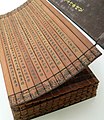













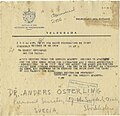






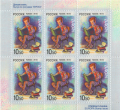










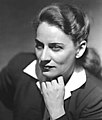

















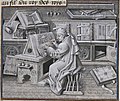














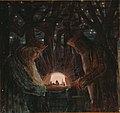


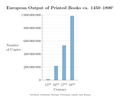




![Image 1 Andrade in 1928 Mário Raul de Morais Andrade (Portuguese pronunciation: [ˈmaɾiu ʁaˈu dʒi moˈɾajs ɐ̃ˈdɾadʒi]; October 9, 1893 – February 25, 1945) was a Brazilian poet, novelist, musicologist, art historian and critic, and photographer. He wrote one of the first and most influential collections of modern Brazilian poetry, Paulicéia Desvairada (Hallucinated City), published in 1922. He has had considerable influence on modern Brazilian literature, and as a scholar and essayist—he was a pioneer of the field of ethnomusicology—his influence has reached far beyond Brazil. Andrade was a central figure in the avant-garde movement of São Paulo for twenty years. Trained as a musician and best known as a poet and novelist, Andrade was personally involved in virtually every discipline that was connected with São Paulo modernism. His photography and essays on a wide variety of subjects, from history to literature and music, were widely published. He was the driving force behind the Modern Art Week, the 1922 event that reshaped both literature and the visual arts in Brazil, and a member of the avant-garde "Group of Five". The ideas behind the Week were further explored in the preface to his poetry collection Pauliceia Desvairada, and in the poems themselves. (Full article...)](http://upload.wikimedia.org/wikipedia/en/d/d2/Blank.png)






